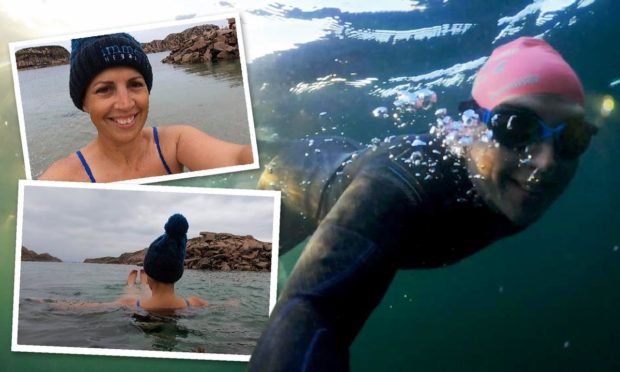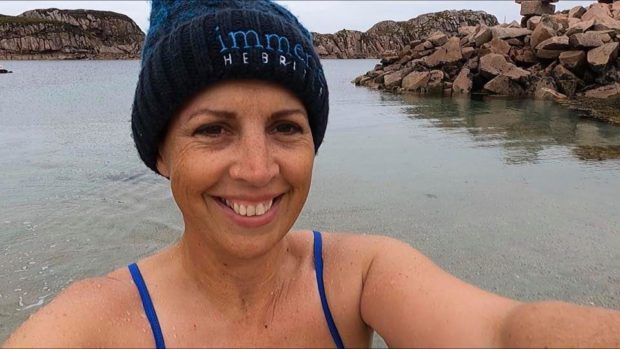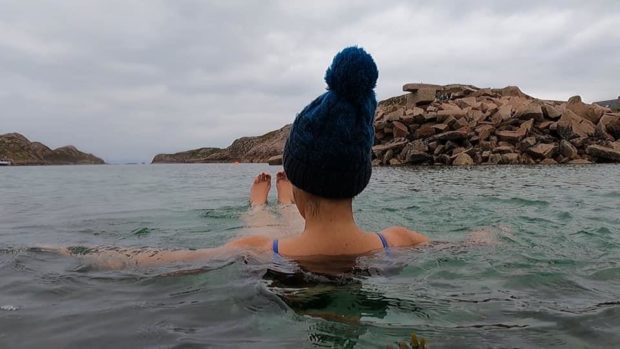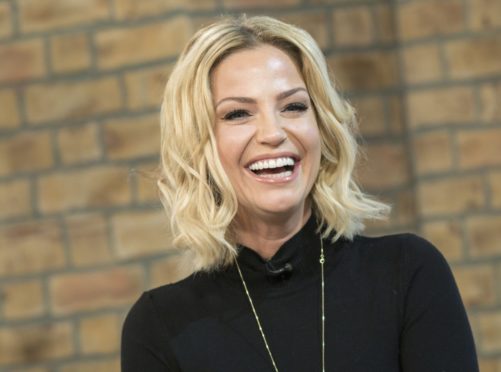A wild swimmer from Lewis has said the open water became her coping mechanism after she was diagnosed with breast cancer.
Norma MacLeod, from Stornoway, is a former cardiac nurse who left the profession to pursue her dream job – taking others into the depths of the Hebridean waters.
Mrs MacLeod, who was diagnosed with breast cancer as the pandemic set in last year, has now encouraged others to seek medical help should they notice any changes in their bodies.
Early diagnosis proved crucial
Initially, the 46-year-old ignored warning signs around April 2020 believing these may stem back to a cyst she experienced earlier in her life.
However, it wasn’t until after she got checked in July that she realised how lucky she was to receive an early diagnosis.
Now, Mrs MacLeod has encouraged others to do the same and has urged them not to ignore warning signs.
‘Because I am a nurse, I thought I knew better’
She said: “Because I am a nurse, I thought I knew better, but also I didn’t want to stretch any services during the lockdown.
“There was lots of wee things I put off and thought ‘it will be ok’.
“I didn’t think I had any risk factors for it and yet it did turn out to be breast cancer.”
She was given hope by a consultant who believed from her mammogram reading that she may not have cancer.
But after her biopsy results, Mrs MacLeod says she was “completely floored” with her diagnosis, and feared how she was going to break the news to her husband.
She said: “When I got the phone call from the Macmillan nurse, my husband was away offshore at the time.
“I was absolutely floored.
“I think it was because I wasn’t expecting it. There is no history of it in my family and I didn’t have any other risk factors.”
Mrs MacLeod was soon put on a treatment plan, which included surgery four weeks later, followed by radiotherapy and chemotherapy.
‘My coping mechanism was swimming’
“I felt really lucky that it was all going ahead,” she added.
“Getting the diagnosis was bad because you kind of catastrophise things and think the worst is going to happen.
“My coping mechanism was swimming.
“All I could think about was if I was going to be able to swim and continue being active.”
Being told she needed chemotherapy was a particularly tough moment.
All I could think about was if I was going to be able to swim and continue being active.”
Norma MacLeod
Mrs MacLeod added: “I have seen family members go through chemo, my father had cancer 25 years ago and he was floored for about a year, and that really upset me.
“I just thought ‘I can’t go swimming now and I am going to have to fold the business’.
“That was the time I cried.
“I then regained myself and told myself I had to just take each day as it comes, which is what I did.”
Even on days when she was not feeling strong enough to swim, Mrs MacLeod would ask her husband to take her to the shore so she could feel the waves crash across her body, a feeling she described as “washing it all away”.
During treatment, Mrs MacLeod was able to bring on board three open water coaches to keep her business, Immerse Hebrides, afloat.
She added: “For me, I really love swimming. That is why I do what I do.
“I feel it is quite meditative – you think of nothing else.
“It just give you a sense of feeling connected.
“Chemotherapy completely disconnects you. You just don’t know what you are thinking sometimes. People can be talking to you and you can’t even formulate a response at times – it just totally affects you.
“As soon as I started feeling better and more myself I just took to the water.”
Death of Sarah Harding prompted message
Mrs MacLeod said she felt compelled to encourage others not to ignore warning signs of breast cancer on the back of Sarah Harding’s death.
The Girls Aloud singer died on September 5 after being diagnosed in August 2020.
Her mother Marie said she had “fought so strongly from her diagnosis until her last day”.
Mrs MacLeod added: “It is scary going for an appointment – you can’t get away from that – but you have to do it.
“The alternative is much scarier.
“It is not easy getting a diagnosis, but if you get it early, and I was lucky I was told it was curable which I am thankful for, but if I had left it any longer, I just don’t know.
“I may have had to face more invasive surgery and be left with bigger physical and mental scars.
“You have to go and get an appointment. You have to go and get checked out.
“If you don’t do it then you are facing that fear and your whole family will be affected by it.
“Don’t waste any time – just face your fears.”
Read more:
- Eight symptoms of breast cancer you shouldn’t ignore
- Woman, 31, diagnosed with triple negative breast cancer days before wedding tells of life post-treatment
- I’m cured! Orkney man shakes off arthritis, diabetes and high blood pressure after taking up wild swimming challenge
- Wild swimming: Check out the cleanest waters to take a dip in with our interactive map



